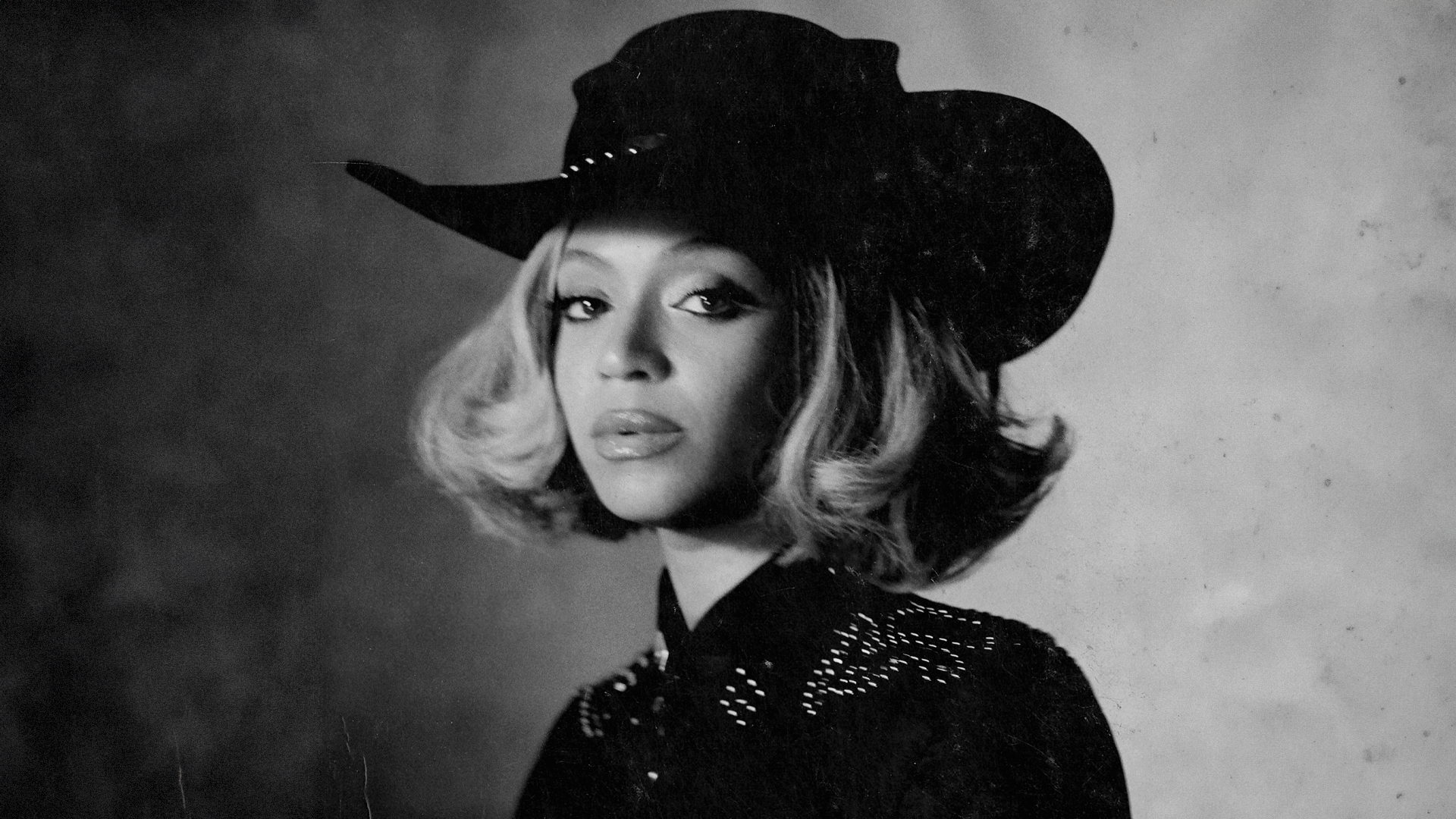The Renaissance artist surprised fans with two new country singles this week. But the genre’s cultural roots prove her latest career move makes every bit of sense.
Beyoncé has been dropping country themes since the launch of Renaissance in 2021. Most notable of these has been the recurring appearance of her mirrored cowboy hat, which became an icon of the Renaissance world tour.
But when she launched two country singles this weekend, she surprised fans and critics alike. Both songs take cues from traditional country western music and cultural icons, and demonstrate Beyoncé’s unrivalled versatility as an artist.
View this post on Instagram
Celebrated for her boundary-pushing creativity and unwavering commitment to championing Black heritage, the Queen of Pop has now embraced a genre deeply rooted in Black American culture.
But unlike the cultural blueprint behind Renaissance, which drew on Black ball culture, dance music, and post-1970s club culture, her new singles are highlighting the lesser-known heritage of a genre that is by and large associated with white Middle America.
This thematic departure is certainly no novelty. To assume so would be a disservice to the rich and complex influences that have shaped Beyoncé’s catalogue.
Country music in fact has a multifaceted history deeply intertwined with the experiences of Black musicians and communities. From its earliest roots in the African diaspora to the present day, Black artists have played a pivotal role in shaping the sounds and storytelling traditions that define country music.
Yet, their contributions have often been overlooked or marginalised within mainstream narratives.
Rhiannon Giddens, a musician who features on Beyoncé’s new single ‘Texas Hold ‘Em’, has used her platform to draw attention to country’s roots and its infiltration by white supremacy.
Giddens’ is a talented banjo player, and has previously spoken about the instrument’s prominent role in American Black cultural history. In fact, the banjo was brought over from the Caribbean by slaves, and quickly became a part of the North American landscape before being coopted by white musicians.
Beyoncé’s dedication to amplifying Black cultural heritage is evident throughout her body of work. From anthems of empowerment like “Formation” to deeply personal reflections on identity and legacy in “Lemonade,” she has continually used her platform to celebrate the richness and resilience of Black heritage.
In embracing country music, Beyoncé extends this commitment, reclaiming a space traditionally dominated by white artists and infusing it with the depth and diversity of her own experiences.
Beyoncé’s venture into country music represents far more than an era of artistic experimentation; it is a statement of solidarity and recognition of the enduring legacy of Black contributions to the genre.
From its earliest roots in the African diaspora to the present day, Black artists have played a pivotal role in shaping the sounds and storytelling traditions that define country music. Yet, their contributions have often been overlooked or marginalised within mainstream narratives.




















